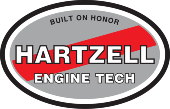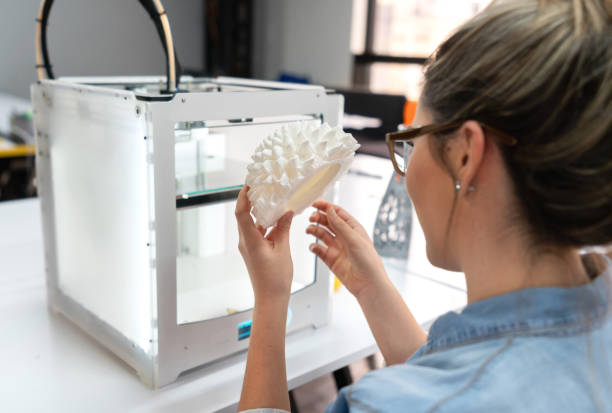The AMA grant package will enable HET’s engineering team to explore ways to use various additive manufacturing technologies to optimize the design and improve the manufacturing quality of many of its piston aircraft engine accessories.
Montgomery, AL (October 20, 2020) — Representatives of Hartzell Engine Technologies, LLC (HET), announced today that the company had received a grant from the city of Auburn, Alabama’s Additive Manufacturing Accelerator (AMA) program.
“This is a very exciting step into the future of product design and manufacturing,” stated Keith Bagley, president of Hartzell Engine Technologies (HET). “We are extremely grateful and proud to have been selected to take part in the Additive Manufacturing Accelerator grant program.”
“We have been actively exploring all of the various benefits available through additive manufacturing techniques for the past 18-months,” he continued, “This grant gives us the opportunity to put our ideas into practice while working with the recognized leaders at Auburn University’s National Center for Additive Manufacturing Excellence (NCAME), it a significant push forward.”
As Rick Quave, HET’s VP, Engineering explained, the company is concentrating its additive manufacturing efforts on Direct Metal Laser Sintering (DMLS), which uses high-energy lasers to fuse metal powders to form 3D printed metal parts.
“Up until now, our designs have been confined by the limitations of the two-part casting and machining production process. After casting, each part has to undergo multiple stages of machine finishing. It adds a lot of time, expense, and creates a lot of waste,” he says. “Additive manufacturing will allow us to totally shift the design paradigm. Instead of a product’s design being driven by current manufacturing limitations, we will be able to design components that deliver improved performance and reliability while also being easier to manufacture.”
“These capabilities will change the fundamental design, manufacturing, and sourcing processes going forward and free us up to design products that optimize performance. We believe that DMLS will unlock those capabilities for us,” Quave added. “We’re encouraged that our upcoming work with Auburn University’s Additive Manufacturing team will prove the value that 3D printing will bring to the production of FAA certified components for piston and turbine aircraft engines.”
“Hartzell Engine Technologies has always taken great pride in consistently delivering the best performing, most reliable parts and components to our customers throughout general and business aviation,” Bagley stated. “We are extremely excited to again be on the industry forefront of bringing beneficial new technologies like additive manufacturing to the general aviation fleet.”
About the Additive Manufacturing Accelerator (AMA)
The Additive Manufacturing Accelerator (AMA) aids manufacturers and entrepreneurs in the creation and development of new manufactured products through the use of advanced additive manufacturing methods in metals and polymers. Manufacturers will develop new products and discover additive solutions to production processes. Entrepreneurs will receive expert business and engineering guidance for their startups and product ideas. For The Additive Manufacturing Accelerator is partly funded by the Alabama Research Alliance and Alabama Department of Economic and Community Affairs. The program is sponsored by Auburn Training Connection and facilitated by the City of Auburn.
For more information about the Additive Manufacturing Accelerator, visit auburnalabama.org/am-accelerator or call 334-501-7377.
About Auburn University
Auburn University is a nationally ranked land grant institution recognized for its commitment to world-class scholarship, interdisciplinary research with an elite, top-tier Carnegie R1 classification and an undergraduate education experience second to none. Auburn is home to more than 30,000 students, and its faculty and research partners collaborate to develop and deliver meaningful scholarship, science and technology-based advancements that meet pressing regional, national and global needs. Auburn’s commitment to active student engagement, professional success and public/private partnership drives a growing reputation for outreach and extension that delivers broad economic, health and societal impact. Auburn’s mission to educate, discover and collaborate drives its expanding impact on the world. For more information, visit: www.auburn.edu.
3d print
